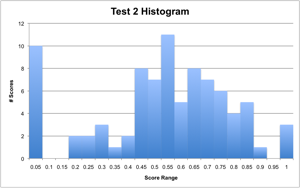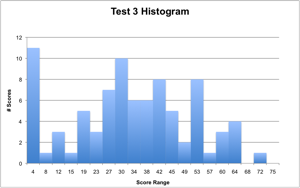| (3 intermediate revisions by one other user not shown) | |||
| Line 1: | Line 1: | ||
| − | [[Category: | + | [[Category:ECE301Fall2008mboutin]] |
| + | [[Category:ECE301]] | ||
| + | [[Category:ECE]] | ||
| + | [[Category:signals and systems]] | ||
| − | =Rhea Section for ECE 301 Division 1, Fall 2008= | + | =Rhea Section for [[ECE301|ECE 301]] Division 1, Fall 2008= |
| − | + | ||
| − | + | ||
| − | + | ||
| − | + | ||
== Course Details == | == Course Details == | ||
[[Image:ProfMimi_ECE301Fall2008mboutin.jpg|thumb|100px|left]] | [[Image:ProfMimi_ECE301Fall2008mboutin.jpg|thumb|100px|left]] | ||
| − | Professor: [mailto:mboutin@purdue.edu Mimi Boutin] | + | Professor: [mailto:mboutin@purdue.edu Mimi Boutin] |
Lecture: '''MWF 4:30PM''' in EE129 | Lecture: '''MWF 4:30PM''' in EE129 | ||
| Line 42: | Line 41: | ||
* [[Midterm Exam Div 2 Fall 2006 scanned Solution_ECE301Fall2008mboutin|Another solution (scanned)]] | * [[Midterm Exam Div 2 Fall 2006 scanned Solution_ECE301Fall2008mboutin|Another solution (scanned)]] | ||
* Some [[Examples_ECE301Fall2008mboutin|Exercises to get ready for the second exam]] | * Some [[Examples_ECE301Fall2008mboutin|Exercises to get ready for the second exam]] | ||
| − | |||
* [[Exam3_ECE301Fall2008mboutin| Exam 3 Information]] | * [[Exam3_ECE301Fall2008mboutin| Exam 3 Information]] | ||
===Key Points=== | ===Key Points=== | ||
Key points summarizing the entire class | Key points summarizing the entire class | ||
| − | * [[Table of Formulas and Properties_ECE301Fall2008mboutin]] | + | * [[Table of Formulas and Properties_ECE301Fall2008mboutin|Table of Formulas and Properties]] |
| − | * [[Mathematical explanation of Linearity and Time-invariance_ECE301Fall2008mboutin]] | + | * [[Mathematical explanation of Linearity and Time-invariance_ECE301Fall2008mboutin|Mathematical explanation of Linearity and Time-invariance]] |
| − | * [[Mimi's key points_ECE301Fall2008mboutin]] | + | * [[Mimi's key points_ECE301Fall2008mboutin|Mimi's key points]] |
| − | * [[What are all these symbols?!_ECE301Fall2008mboutin]] (Quick reference to commonly-used symbols in class.) | + | * [[What are all these symbols?!_ECE301Fall2008mboutin|What are all these symbols?]] (Quick reference to commonly-used symbols in class.) |
| + | * A mystery about complex number: why is <math> e^{j 2\pi t}</math> not equal to one? More precisely, why can't one say that <math> e^{j 2\pi t}=(e^{j 2 \pi})^t= 1^t =1 </math>? Please discuss [[Main_Page_ECE301Fall2008chihw| here]] | ||
=== Homework Related Stuff=== | === Homework Related Stuff=== | ||
| Line 105: | Line 104: | ||
== Rhea How–Tos == | == Rhea How–Tos == | ||
| − | *[[How to add elements to a page_ECE301Fall2008mboutin]] | + | *[[How to add elements to a page_ECE301Fall2008mboutin|How to add elements to a page]] |
* Rhea works very much like Kiwi. So if you want to learn how to edit this Rhea wiki, you can watch the [http://www.youtube.com/v/uOYfXDccf8k&hl=en Kiwi instructional video]. | * Rhea works very much like Kiwi. So if you want to learn how to edit this Rhea wiki, you can watch the [http://www.youtube.com/v/uOYfXDccf8k&hl=en Kiwi instructional video]. | ||
*[http://www.ctan.org/tex-archive/info/symbols/comprehensive/ Comprehensive list of LaTeX commands] (LaTeX is how you write the math-y stuff between "< math >" and "< /math >".) | *[http://www.ctan.org/tex-archive/info/symbols/comprehensive/ Comprehensive list of LaTeX commands] (LaTeX is how you write the math-y stuff between "< math >" and "< /math >".) | ||
| + | ---- | ||
| + | [[ECE301|Back to ECE301]] | ||
Latest revision as of 05:10, 16 September 2013
Contents
Rhea Section for ECE 301 Division 1, Fall 2008
Course Details
Professor: Mimi Boutin
Lecture: MWF 4:30PM in EE129
Course Website: course webpage
TA: Benjamin Brame
TA office hours in MSEE383 (no longer EE116)
- M,W 3:30-4:30
- Tu,Th 10:30-11:30
- F 2:30-3:30
Course Announcements
Histograms for Test 1, Test 2, and Test 3:
Best of Rhea
Please post a link to the pages that you believe belong to the "best of" this course wiki. This will be used to generate a "Best of Rhea" page for all of Rhea.
Course Related Material
Exams
- Final Exam Summary (Please Contribute Definitions, Explanations, Examples, Tips, Tricks, etc)
- Solved Homework Problems from the Book
- Post your solved practice exam no. 1 (pdf files) here.
- One graded Fall 2006 practice Exam 2 waiting for more input and comments.
- Another solution (scanned)
- Some Exercises to get ready for the second exam
- Exam 3 Information
Key Points
Key points summarizing the entire class
- Table of Formulas and Properties
- Mathematical explanation of Linearity and Time-invariance
- Mimi's key points
- What are all these symbols? (Quick reference to commonly-used symbols in class.)
- A mystery about complex number: why is $ e^{j 2\pi t} $ not equal to one? More precisely, why can't one say that $ e^{j 2\pi t}=(e^{j 2 \pi})^t= 1^t =1 $? Please discuss here
Homework Related Stuff
Turn in your homework on these pages.
- Homework 1 related stuff
- Homework 2 related stuff
- Homework 3 related stuff
- Homework 4 related stuff
- Homework 5 related stuff
- Homework 6 related stuff
- Homework 7 related stuff
- Homework 8 related stuff
- Homework 9 related stuff
- Homework 10 related stuff
- Homework 11 related stuff
Lecture Notes and Class Feedback
- Lecture 1: Intro; Example of DT signal (text) and system (enigma machine).
- Lecture 2: Example of CT signal (sound); Creating sounds in Matlab; Example of linear system.
- Lecture 3: Transformation of Independent Variables
- Lecture 4:
- Lecture 5: Cascading Systems
- Lecture 6: Causality, Stability, Time Invariance
- Lecture 7:
- Lecture 8:
- Lecture 9:
- Lecture 10:
- Lecture 11:
- Lecture 17: FTs and the f response, differential equations
- Lecture 18
- Lecture 19: TA Example Session w/ DT Fourier Transforms and inverses
Help Sessions
Content covered in the Tuesday help sessions will be posted here.
- Session 1: 9/2/2008: Phasors, Energy, Power, and Geometric Series Updated
- Session 2: 9/9/2008:
- Session 2: 9/16/2008:
Out of class "Exercises"
Area to post questions asked of the students to figure out between lectures and the answers to the questions.
- Exercise 1: 9/8/2008: Time Invariance
Non-Course Related Material
Rhea How–Tos
- How to add elements to a page
- Rhea works very much like Kiwi. So if you want to learn how to edit this Rhea wiki, you can watch the Kiwi instructional video.
- Comprehensive list of LaTeX commands (LaTeX is how you write the math-y stuff between "< math >" and "< /math >".)





